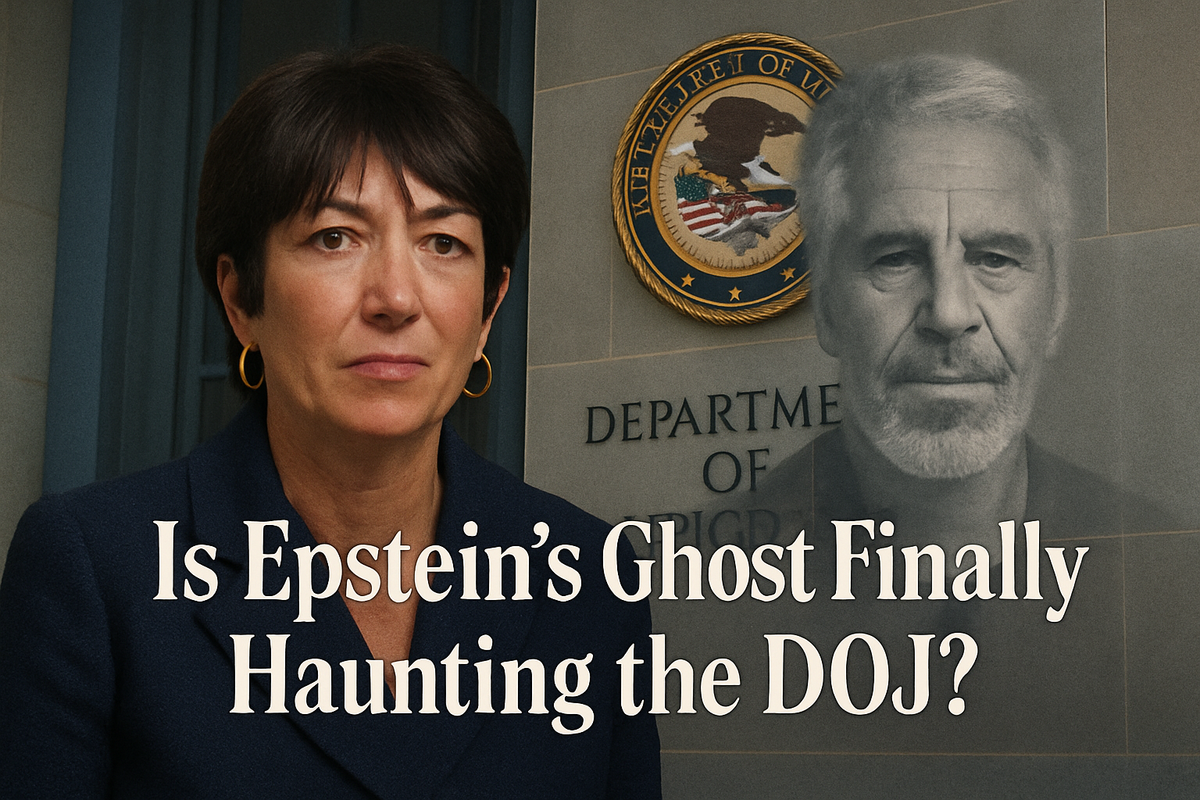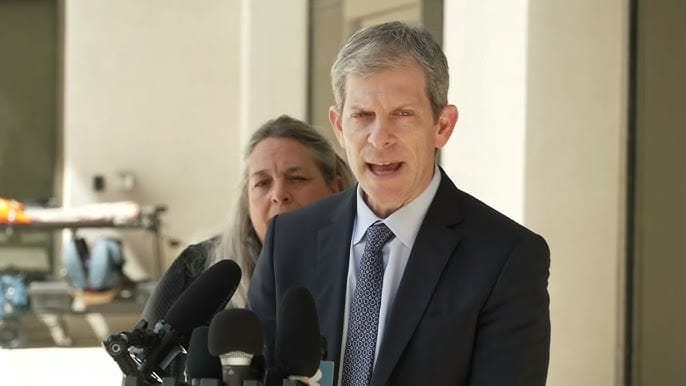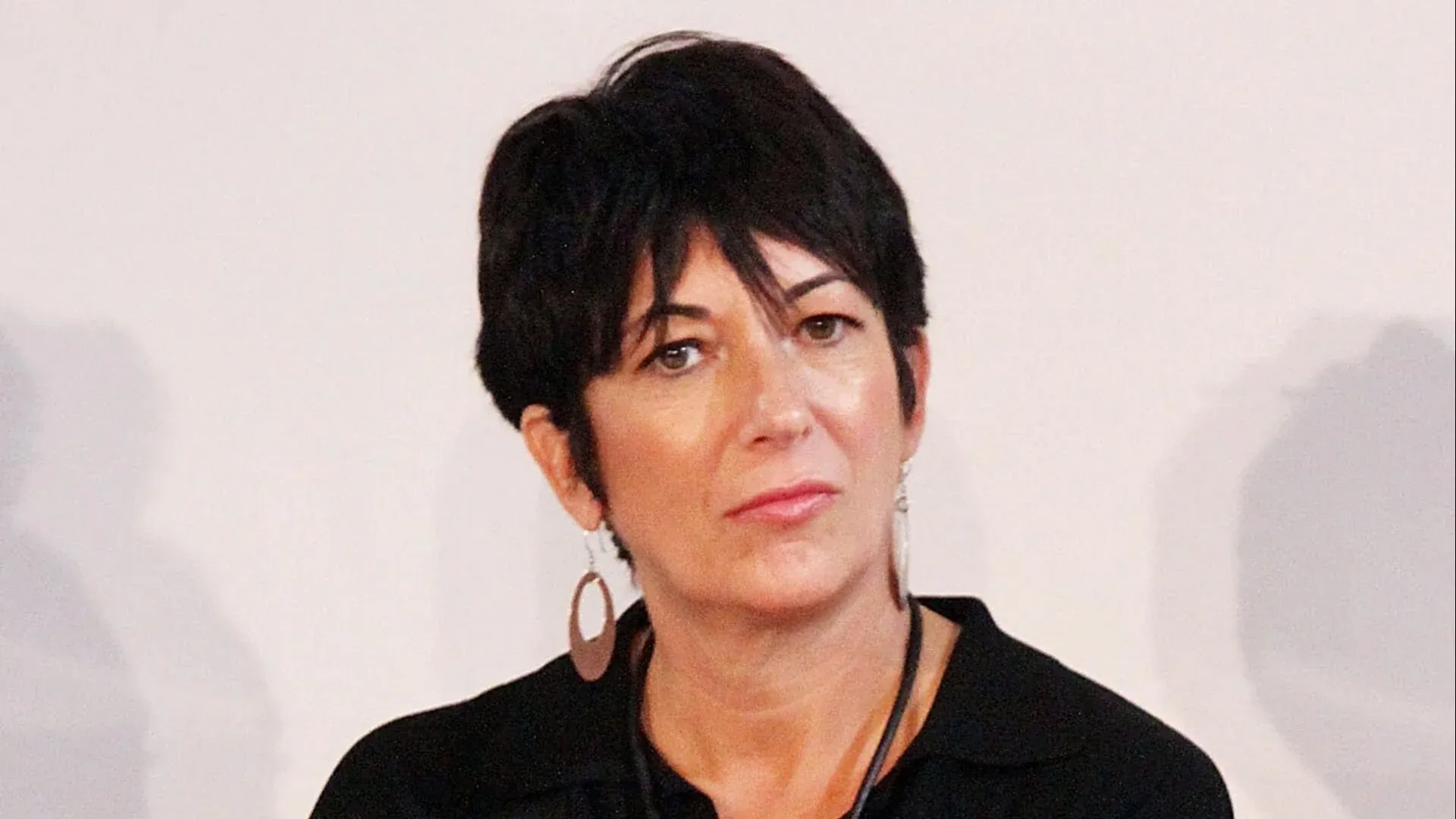Why Is Ghislaine Maxwell’s Lawyer Meeting the DOJ? Epstein Probe Heats Up Again
Deputy AG Todd Blanche’s July 24 meeting with Ghislaine Maxwell, Epstein’s jailed associate, reignited debates over secret Epstein files and a possible “client list.” This deep dive traces the timeline, legal filings, FOIA fights, and implications.

Written by Lavanya, Intern, Allegedly The News
WASHINGTON, D.C., July 25, 2025
On July 24, 2025, Deputy Attorney General Todd Blanche traveled to Tallahassee to meet Ghislaine Maxwell at the federal prison where she is serving a 20-year sentence for helping Jeffrey Epstein’s sex-trafficking network. The session lasted several hours. Maxwell’s attorney, David Markus, later told reporters that she “answered every single question honestly and to the best of her ability” and described the day as “very productive.” Neither Blanche nor DOJ officials commented on the details, but Blanche posted on social media that he planned to continue the interview on July 25 and that the Justice Department would “share additional information about what we learned at the appropriate time.”
Background: Epstein Files and Transparency Promises
This meeting coincided with a controversy over documents related to Jeffrey Epstein. Earlier in 2025, Attorney General Pam Bondi released a “first phase” of materials tied to Epstein, stating it was part of President Trump’s commitment to transparency. That February press release said the documents, mostly previously leaked, “shed light on Epstein’s extensive network” and promised more would follow. In July, the DOJ and FBI published a memo reporting on a thorough review of Epstein files. The review stated that there was “no incriminating ‘client list’” and “no credible evidence” that Epstein had been blackmailing anyone. It concluded there was “no basis” to reopen the case and that “no further disclosure would be appropriate or warranted.” This meant the agencies claimed they found nothing new beyond what prosecutors had already disclosed.
Joint DOJ-FBI Review: No Client List
In early July 2025, the DOJ publicly admitted that Epstein did not have a formal client list, responding to pressure from conspiracy-minded critics. A July 7 announcement stated that after reviewing tens of thousands of pages of digital files, “no evidence was uncovered that could prompt an investigation against uncharged third parties.” The memo emphasized that continuing the Epstein investigation was unnecessary and said “no further disclosure would be appropriate or warranted.” In congressional testimony, Bondi and Blanche similarly informed lawmakers that nothing in the files justified further investigations and that they had moved to unseal grand jury transcripts as a courtesy.

Legal Battles: Transcripts and Secrecy
However, efforts to obtain more information faced obstacles. On July 23, a federal judge in Palm Beach, Judge Robin Rosenberg, denied the DOJ’s request to unseal transcripts from earlier Florida Epstein probes, stating the government had not shown any of the specific exceptions needed to open secret grand jury proceedings. This motion involved investigations from 2005 to 2007; the DOJ also filed separately in Manhattan to unseal transcripts from the 2019 Maxwell/Epstein case. In New York, Judge Paul Engelmayer ordered the DOJ to provide more details on why it wanted to disclose grand jury testimony from Maxwell’s trial in 2021. Engelmayer gave the DOJ until late July to explain its reasoning and required that any transcripts or proposed redactions be filed under seal. Maxwell’s lawyers requested to review those transcripts first, something Deputy AG Blanche does not oppose, to “set out our position” on whether they should be made public. Victims in the case were given until early August to comment on any disclosure. In short, the courts have been cautious about breaking grand jury secrecy despite political pressure.
Congressional Oversight and Politics
The interview with Maxwell and the DOJ’s actions have drawn intense scrutiny in Washington. Lawmakers from both parties demanded answers. A House Oversight subcommittee voted 8-2, with three Republicans joining Democrats, to subpoena the Justice Department for all documents related to Epstein, and the full committee issued a separate subpoena for Maxwell to testify in August. Speaker Mike Johnson even paused the House floor for two days to avoid a fight over releasing the files, highlighting how contentious the issue is for Republicans. Some Trump allies, including Rep. Dan Goldman, have accused the DOJ of sidestepping usual procedures by working directly with Maxwell, even suggesting she might be seeking a pardon or leniency from the White House in exchange. Blanche dismissed these claims, stating that the July FBI statement “remains as accurate today as when it was written” and that he was simply following the President’s directive to “release all credible evidence.”

Maxwell’s New Claims and Appeals
Maxwell’s legal team and family have used the controversy to claim vindication. Her brother Ian Maxwell stated she presented “new evidence” before the meeting, evidence not available during her 2021 trial that could “have a significant impact” on the verdict. Maxwell, who was convicted of child sex trafficking in 2021 and is appealing her conviction, seems to be positioning herself as a truth-teller. Before the meeting, her lawyers informed the court that she would testify truthfully about “what she has to say,” which aligns with statements emphasized by Blanche and Bondi. Meanwhile, the DOJ has indicated that revealing real victims’ details or illicit images would not be allowed due to existing sealing orders.
Implications for the Epstein Probe
The meeting between Blanche and Maxwell highlights the Biden administration’s tricky balancing act. Under pressure from Trump supporters for transparency, the DOJ is examining every lead in the Epstein case, but its senior leaders publicly insist the case is mostly closed. Reactions to the meeting have varied: some conservative media outlets noted that it was unprecedented, while Democrats warned it could politicize the Justice Department. What’s clear is that Maxwell has become a key figure in the discussion. In addition to the actions by Congress, Senator Adam Schiff has called for Bondi and FBI Director Kash Patel to testify about the case, increasing the stakes. With Trump also riled up over the situation, even suing a newspaper over an old Epstein note, the pressure on the DOJ is high. For the victims, the most concrete update so far is simply that the Justice Department’s review found nothing new to prosecute. As the joint DOJ-FBI memo stated, “each [Epstein] victim suffered unique trauma,” and ensuring their protection is crucial. DOJ officials have said they will only release additional material after removing sensitive information. This means that any new information will likely come through further testimony or sealed filings rather than mass document releases. Maxwell’s upcoming congressional hearing in mid-August and any future legal filings may provide more insight into what she told investigators. Until then, the narrative remains a complex blend of legal processes and political theater, a situation that investigators and the public will watch closely.

The Real Puzzle: Is the Epstein Case Reawakening or Being Rewritten?
Despite years of court filings, survivor testimonies, and institutional promises, the Epstein saga remains disturbingly incomplete. The July 24 meeting between Ghislaine Maxwell’s attorney and the DOJ may mark a turning point; however, the direction of that turn is still uncertain.
If this signals a renewed push for accountability, it could expose long-buried connections between elite power networks, institutional negligence, and a justice system that often shields rather than reveals. But if this is another closed-door conversation that leads nowhere, or worse, to a quiet deal, it may reinforce the cynicism that powerful people protect each other while survivors wait in silence.
Transparency is no longer optional. If the Department of Justice wants to be seen as more than a political actor in a high-profile scandal, it must confront the long trail of evidence, public mistrust, and survivor anguish openly not in secrecy, but in daylight.
Let’s Talk
What Should Justice Look Like in the Epstein Case Now? If new legal momentum is building, how should it be directed? Is it time for a public commission on institutional complicity? Why haven’t more names from Epstein’s circle faced charges? Should the public demand FOIA releases of all sealed Epstein documents? Can we trust the DOJ to pursue justice fairly, or should an independent counsel be involved?
Leave your thoughts in the comments. The silence around this case has protected too many for too long.
Sources
- U.S. Department of Justice (DOJ) Press Briefings & Statements
- Court Listener: United States v. Ghislaine Maxwell Case Docket
- PACER (Public Access to Court Electronic Records)
- Freedom of Information Act (FOIA) Requests and Redactions Repository
- Title 18 U.S. Code § 1591 - Sex trafficking of children or by force, fraud, or coercion
- The Miami Herald – “Perversion of Justice” Series by Julie K. Brown
- The Daily Beast – Epstein/Maxwell Investigations Archive
- The New York Times – DOJ & Epstein Investigation Coverage
- Reuters Legal – Updates on DOJ Meetings and Maxwell’s Legal Strategy
- VICE News – Deep Dive on Epstein’s Institutional Connections
- ACLU – Public Commentary on Prosecutorial Transparency & Survivors’ Rights
- Google Trends
- Wayback Machine – Archived DOJ pages and news articles no longer live
- BoomLive
- Sky News / CBS News
- Guardian
- Reuters
- AP / Politico
- House Oversight hearing reports; court filings and orders (Engelmayer, Rosenberg)




